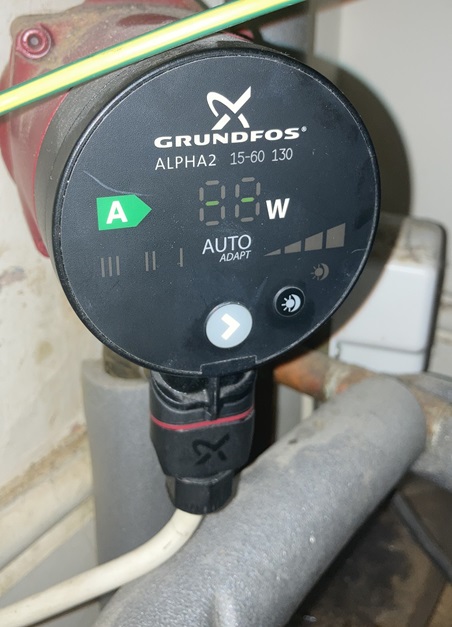March 2024
Pupdate
March continued the succession of Atlantic weather front based wet and wind that’s been going on since mid October; but… it’s been warm enough for the coats stay off, at least some days.
Damian Lewis
I’ve loved just about everything I’ve seen Damian Lewis in, particularly Billions; so (despite his crooning of the National Anthem at Silverstone F1 last year) when the chance came up to see him with his band I was straight onto the booking page.
His stage presence was exactly what I expected after seeing him on chat shows, and he and the band put on a good fun show.
Rick Wakeman
I neglected to include this in my Feb post, but I also got to see Rick Wakeman at Trading Boundaries. He put on a virtuoso demonstration of keyboard playing. Perhaps my favourite bit was when he played various nursery rhymes in the style of different comedians – he’s a musical genius.
AI workshops
Last month I described AI as the bubbliest bubble I’ve ever seen, but that doesn’t mean I’m not interested in learning more about what the tools can achieve. So I attended a couple of workshops at Google’s London office.
Duet
The re-brand of all AI Googley things to ‘Gemini’ hadn’t quite rolled into their coding assistant, so we were still calling it Duet at the start of the month.
My main takeaway is that it’s possible to create a lot of mundane stuff very quickly. One concern that emerges is you can create a lot of code you might not understand, but that can quickly be batted back with ‘get the AI to explain the code to you’, which it can do – if you actually care.
Just as AI is a spammers delight for ‘content’, it seems that it’s now possible to create run of the mill websites and apps in enormous volume at great speed. This is probably not a tremendous thing in the (limited) attention economy.
The first thing I asked Duet was ‘what’s the latest version of the Go programming language?’ to which it replied 1.19.2. I subsequently asked ‘what’s the latest version of the Dart programming language?’, which got me 2.17. Coffee break chat touched on the ‘Stack Overflow problem’ of things being right at some past point in time, but no longer correct in current practice.
I can see how such assistants are useful for certain types of programming related work, but I’ve yet to see anything that’s particularly helpful for the challenges I personally face day to day.
Gemma
Gemma is the suite of open models that complements Gemini based services and allows people to build things that incorporate a model locally.
Much of the workshop was spent explaining why it’s an open model rather than open source, and agonising over the safety versus openness arguments.
But we did get to the fun stuff eventually, with a demo of an AI powered word game that could be run standalone on a laptop (without needing Internet connectivity). It was simultaneously impressive and underwhelming – the tech holds so much promise, but even fairly trivial demos can end up revealing weaknesses.
Monkigras
I’ve been going to RedMonk founder James Governor’s Monkigras since the beginning, so it was great to see it back after a long (not entirely to do with the pandemic) break.
The theme was (of course) AI with ‘prompting craft’, and James did an amazing job of bringing together a lineup of speakers with unique insights on the topic. Here’s the main takeaways I noted down:
- We’re quickly evolving past the point of large language models (LLMs) being used standalone into an environment where they’re glued into more complex workflows. The ‘mash-up’ is back, and there’s a bunch of new tools like LangChain and Griptape to help things along.
- Retrieval-augmented generation (RAG) is the present hotness, and inserting knowledge graphs into queries looks especially promising.
- Most applications of LLMs benefit from a process that Google’s Zack Akil calls IVO – Immediately Validate Output; meaning that the output generated by the model is immediately validated (and corrected) by a human expert before it gets in front of an end user. The example he showed of translating indecipherable (to a layperson) medical terminology into plain language was super quick, but clearly something that needed a doctor to click the ‘looks good to me’ button before getting to a patient.
- ‘AI skill risk’ is distorting the incentive structures within organisations – another complicating factor in office politics and the relationship between workers and management.
- The current ‘chat’ interface to most models doesn’t provide much in the way of user interface affordances – those little clues we get about what we’re supposed to do next. So we can expect a Cambrian explosion in new ways to interact.
- Asking a model for its reasoning can help give it an ‘internal monologue’ that improves the quality of output.
Lastly, and perhaps most importantly, there’s ‘no magic’. LLM based systems may not be deterministic in the way that we’re accustomed to with regular computer programs; but we can still reason about such systems, and scratch deep enough and there’s just applied statistics and a LOT of matric multiplication.
Podcasts
Nick and I have been recording a fresh season of Tech Debt Burndown, along with a special mini series; but I’ve also spent some time as a guest on other people’s podcasts.
- DevHops – Unpacking Leadership
- Ship It! – Scoring your project’s security
There’s also an episode of Nerding out with Viktor in the can that I hope will drop soon.
Plumbing
I got up one morning to a cold house. It didn’t take long to figure out that the central heating pump had broken. It had done OK (much better than its predecessor), lasting around 15y.
Worse was to follow though, as I cleared the way for the heating engineer I noticed a leak from the central heating/hot water diverter valve.
I have a Corgi insurance policy, which got an engineer the next day, but he was only able to fix the pump, which at least got the heating going again (which in turn made the leak less bad). He reckoned that replacing the valve would first mean draining and removing the tank – a lot of time consuming work.
After a bit of chasing, and another call out fee, and a visit to see the job, and a bit more chasing; a second engineer came to replace the leaking valve, which he managed without having to tear the whole system apart.
Turbo trouble
When we got the new Mini last September I decided to hang onto our Volvo, at least for a bit, as it’s not worth much given its age and miles, but still in nice condition. I’d also spent a bundle on it over the summer to get various things fixed. Sadly it’s been playing up again. On a short local trip it went into ‘limp mode’, meaning vastly less power from the engine due to no turbo. It reset when stopped, but would start limping again after any hard acceleration or big hills to climb.
I got hold of a code reader that threw up P0299 ‘Turbo underboost’, and with nothing obvious that I could fix it was off to the garage. They eventually tracked things down to a broken sensor – one that fails so frequently that they had one in stock. It’s behaving itself again now, but I wonder if it’s time for it to go, especially as we’ll shortly have $daughter0’s Mini back on the drive whilst she’s doing her industrial placement year.
Solar Diary
Despite the clouds and wet weather this March was actually better than last year.

Filed under: monthly_update | Leave a Comment
Tags: AI, Corgi, dachshund, Damian Lewis, Duet, Gemma, heating, leak, LLM, Monkigras, plumbing, podcast, prompt, pump, pupdate, Rick Wakeman, solar, turbo, Volvo





No Responses Yet to “March 2024”